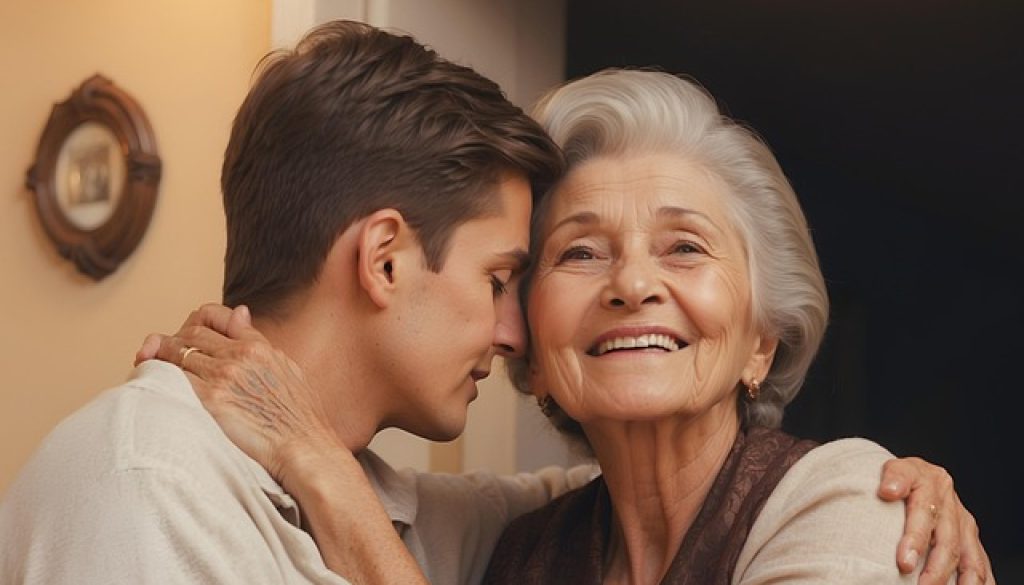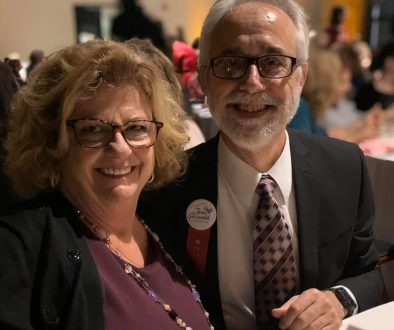From Overwhelmed to Organized: 8 Ways Care Planning Builds Confidence for Care Partners
Caregiving doesn’t come with a roadmap (until we decided to create one). But even with all the resources in the world, the sentiment remains the same: being a care partner is tough … really tough. The good news is, life-care planning builds confidence for care partners.
One minute you’re attending your child’s soccer game or managing a career, and the next you’re handed a discharge paper at the hospital and asked to make critical care decisions for Mom. You’re in the thick of it — with no compass. For so many caregivers, the most difficult part of making strong care decisions is getting organized in the first place.
Over the years, I’ve met hundreds of care partners who came to me completely overwhelmed. Not because they didn’t love their elder loved one. Not because they weren’t trying hard enough. But because no one had ever shown them how to build a life-care plan.
They were disorganized. Confused. Cluttered. Indecisive.
But when we created one together — when we organized their caregiving reality into something intentional and focused — their confidence returned. The fog would lift. Love could shine through again. Most importantly, their elder loved ones also felt more empowered to direct care on their own terms!
Organizing Your Loved One’s Elder Care with Great Life-Care Planning
Here are 8 powerful ways I’ve seen care partners go from overwhelmed to organized — and how you can, too:
1. Know Where the Documents Are
“Sheila” had just flown in from another state after her father fell at home. She had no clue where to find his medical records, will or power of attorney documents. Every hospital form felt like a pop quiz.
We worked together to create a binder of important elder care documents — one place for everything. Insurance, financial records, legal docs, emergency contacts. A week later, she texted me from the hospital: “They asked who makes medical decisions. I just handed over the binder. No panic.”
Life-Care Planning Tip: Consolidating documents in one place instantly reduces chaos and increases confidence
2. Understand the Healthcare Lingo
Doctors use words like comorbidities, palliative care and polypharmacy like everyone speaks their language. But most care partners don’t. The healthcare system is confusing enough without feeling like you have to bring a dictionary to each doctor visit.
“Dave,” a devoted husband to his wife with early-stage Alzheimer’s, once said, “I just nodded at the neurologist, but I honestly had no idea what he was talking about.” So we role-played appointment prep. We made lists. He started asking questions with clarity — and getting the answers he needed.
Life-Care Planning Tip: Not fearing asking questions about healthcare terminology empowers you to advocate effectively.
3. Build a Care Partner Team
“Sandra” was caring for her husband alone. As a couple that enjoyed their independence, that had never been a problem – until she got the flu and ended up in the hospital herself. There was no one lined up to care for him. That shook her.
We created a care partner team with neighbors, their adult children and a home care agency. Today, she calls them her “circle of strength.”
Life-Care Planning Tip: A care team means you’re never alone. Shared responsibilities prevent burnout.
4. Make a Realistic Financial Plan
“Robert” and his daughter came to me terrified of running out of money. Assisted living? Long-term care insurance? Medicaid? It was all so overwhelming.
Together, we evaluated their finances, consulted an elder-law attorney, and built a plan that protected his assets and honored his care needs.
Life-Care Planning Tip: Confidence comes when you know how care will be funded — and that your family’s financial future is secure.
5. Include Their Loved One in the Conversation
“Michelle” had early signs of dementia, but she was still very much capable of voicing her wishes. But Michelle and her daughter had avoided “the talk” for too long. They were both afraid of scaring and upsetting each other.
So the three of us sat down together, asked open-ended questions, and documented Michelle’s wishes for medical care, spiritual beliefs and end-of-life preferences. She actually smiled and said, “Thank you for asking.” Her daughter said, “That was easier than I thought.”
Life-Care Planning Tip: Include your elder loved one while they can still share. It makes everyone feel seen, heard and respected.
6. Prepare for the Unexpected
It’s one of the oldest clichés: expect the unexpected. But clichés become cliché because they so often ring with truth.
One of my clients, “Jane”, nearly lost her mind when a power outage shut down her father’s oxygen machine. That led to a cascade of health issues. The problem wasn’t the storm — it was the lack of a backup plan.
Now “Jane” has a backup power source, a hospital “go bag,” and a printed list of meds on the fridge. No more panic.
Life-Care Planning Tip: Emergency plans are peace plans in disguise.
7. Practice Self-Care Without Guilt
“Sandra” (yes, the same one with the flu) once told me she felt selfish for leaving the house. She couldn’t remember the last time she even had a quick haircut. We reframed that thinking. She started setting small caregiver self-care goals — 30 minutes of yoga, joining a support group, scheduling regular hair appointments, etc.
Her strength returned. Her joy returned.
According to AARP, more than 60% of caregivers report extreme levels of stress. (My expert estimate would be much higher than that.)
Life-Care Planning Tip: Taking care of YOU helps you care better for them.
8. Shift from Caregiver to Care Partner
When you stop doing everything for your loved one and start doing it with them, everything changes. Independence and dignity become part of the plan. It becomes easier – and sometimes even fun and fulfilling – to make elder-care decisions.
One family I worked with created a weekly routine for Dad — who has Parkinson’s — to help prep meals and organize mail. He felt purposeful again. The goal wasn’t to make things easier for him by just doing everything for him. It was to maintain meaningful tasks that he was still able to do.
Life-Care Planning Tip: Elder care isn’t just a to-do list of tasks — it’s about joy, identity and connection.
My Life-Care Planning Masterclass Helps Care Partners Get Organized
When I developed our Life-Care Planning Masterclass, it was to help more families experience these kinds of breakthroughs. We take you step-by-step through each phase of planning — medical, legal, financial, personal — so you don’t have to scramble in a crisis.
I’ve sat beside families in chaos. I’ve cried with them. And I’ve celebrated with them when they realized they could do this.
And so can you. Ready to turn overwhelm into confidence? Join me in the Life-Care Planning Masterclass — because We Plan Because We Care. As always, feel free to contact me directly at MaureenRulisonpatientadvocate@gmail.com.




